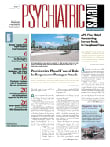Although every industry experiences the change in efficiency and productivity that occurs when workers leave and replacements take their place, few industries experience the phenomenon known as cohort turnover, when many workers leave coupled with a comparably sized entry of new workers at a single point in time. (Political administrations are one example of cohort turnover.)
But every July, U.S. teaching hospitals experience cohort turnover affecting more than 100,000 medical personnel, an event that has long been suspected to incite an abrupt dip in the average level of experience of the hospital workforce and the deleterious disruption of established teams.
In the July Annals of Internal Medicine researchers at the University of California, San Francisco School of Medicine confirmed the existence of the so-called "July effect," concluding that mortality increases and efficiency decreases in hospitals because of year-end changeovers.
The researchers reviewed studies describing the effects of trainee changeover on patient outcomes, identifying 39 studies that met their inclusion criteria. They looked at outcomes such as mortality, morbidity, medical-error outcomes (for example, pneumothorax associated with central venous catheter insertion), and efficiency (indicated by factors such as length of patient stay, hospital charges, and operating-room time). They assessed the quality of each study as well, finding that the proportion of studies with statistically significant worsening of mortality appeared to increase with study quality.
The investigators did point out that the information found in these studies did not allow them to delve as deeply into the topic as they wished: "Although our review of the literature suggests that the "July effect" exists, methodologic limitations and study heterogeneity make deeper conclusions more difficult to draw," said lead author John Young, M.D., M.P.P., an assistant professor of psychiatry at the University of California, San Francisco, and his colleagues.
They noted that the "July effect" entails both a drop in the clinical experience of the physicians in the system and a decrease in the number of physicians who are familiar with the clinical system, citing one study that found undesirable events occurred as commonly in fifth-year trainees who were new to the hospital as in interns, suggesting that unfamiliarity with the working environment may contribute to decreased quality of care.
"Unfortunately, our review discovered little evidence to discern to what extent worsened mortality and efficiency stem from clinical inexperience, inadequate supervision of trainees in new roles, and loss of "system knowledge" due to cohort turnover," they said.
In an accompanying editorial in the same issue, Paul Barach, M.D., P.P.H., of the University Medical Center in Utrecht, the Netherlands, and Ingrid Philibert, Ph.D., M.B.A., senior vice president of the Department of Field Activities at the Accreditation Council for Graduate Medical Education, described the findings as "sobering," saying the systematic review is "superb" and the existence of this phenomenon "seems incontrovertible and unsettling."
"Patients would not consent to care if they knew that the opportunities for residents to learn come at the expense of their welfare," they opined.
Young and colleagues identified in their report several possible remedies to the "July effect," including staggered scheduled starts for trainees, but "effective design of interventions...will require better information about causes and magnitudes of harms in a variety of clinical settings," they cautioned.
The study was funded by a grant from the National Heart, Lung, and Blood Institute to co-investigator Andrew Auerbach, M.D., M.P.H.

